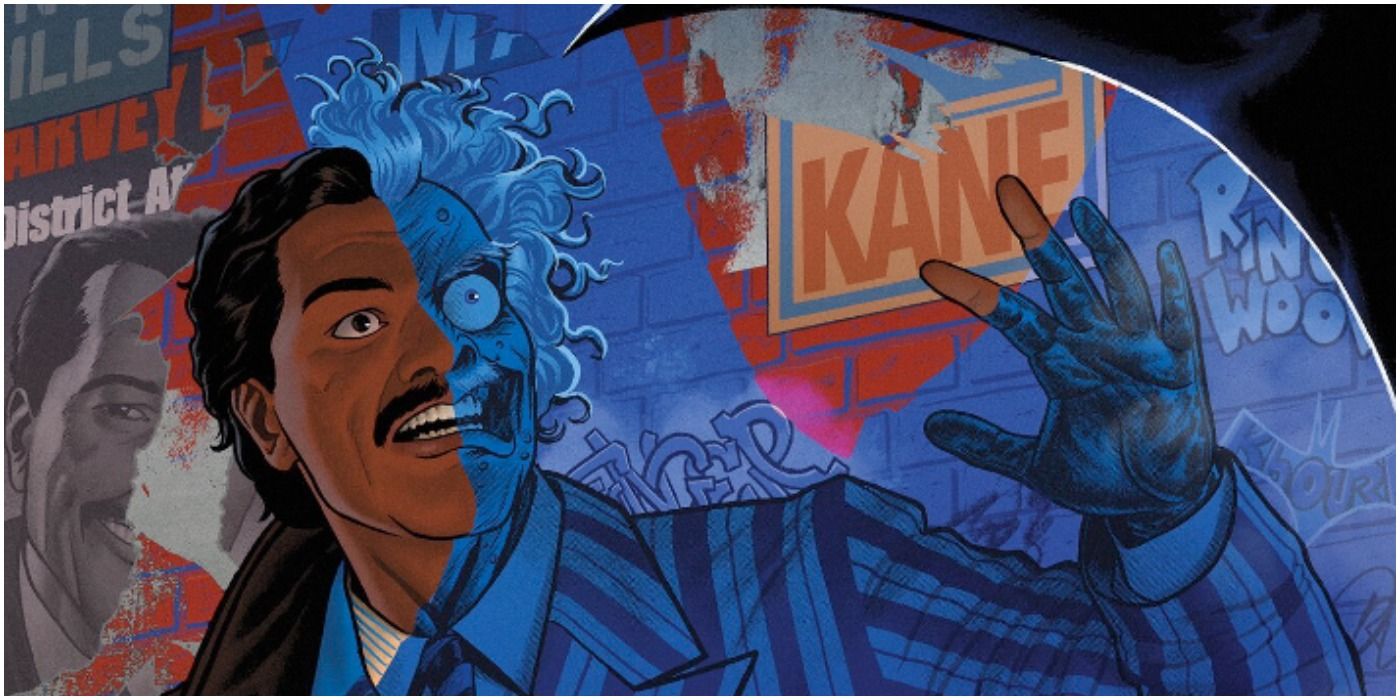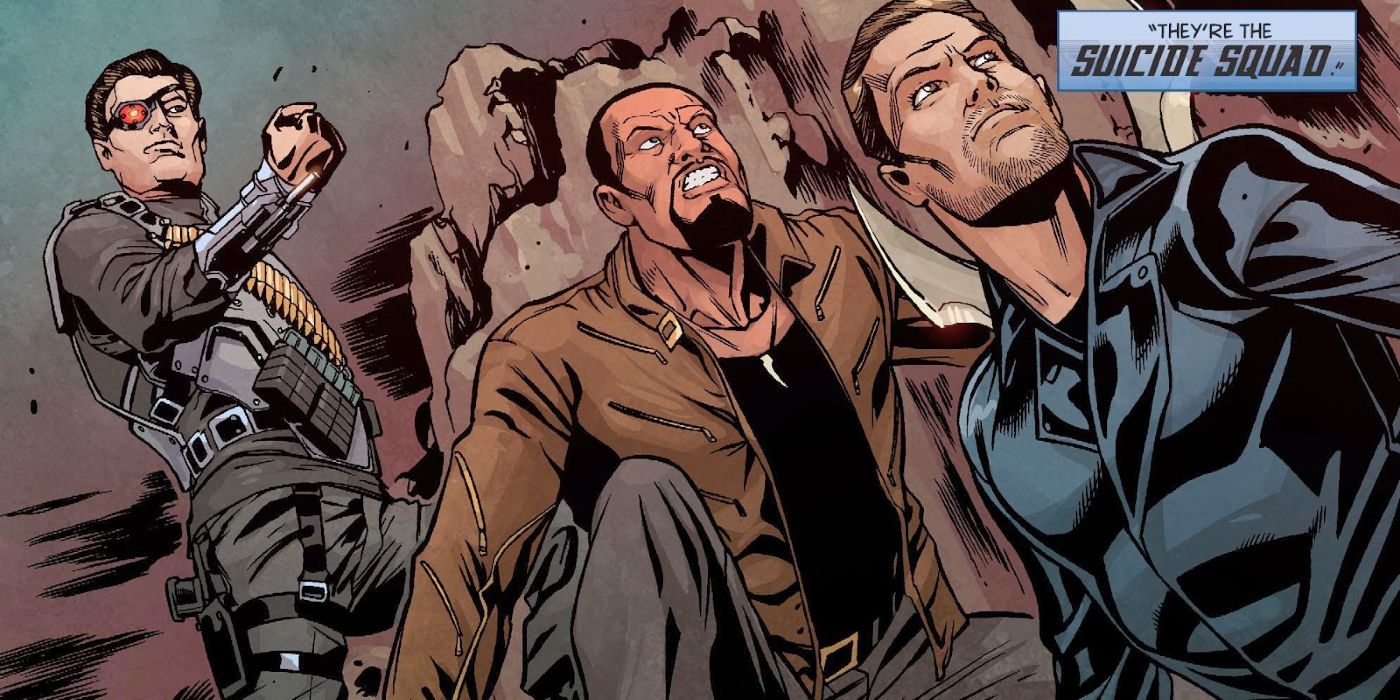Will Dar Matter Continue on as a Comic
The Arrowverse is mainly a shared universe of DC Comics television shows, but it is now about to jump full-on into the source material. The upcomingEarth-Prime miniseries will be a comic book uniting the heroes of the CW's various shows. It's not the first comic book tie-in to another medium, however. In fact, it's not even the first for the Arrowverse, begging the question of just how effective these types of stories are.
Marvel and DC have both produced comics set in the same universe as movies, cartoons and TV shows, but the result many times is a resoundingly mediocre response regardless of the books' actual quality. This begs the question of whether or not "reverse" comic book adaptations are even an effective storytelling platform, especially since many of the original works' audiences will never read them.
Comic Books That Continue the Story of Movies, Cartoons, Shows and Video Games

Comic book tie-ins to non-comic book adaptations of existing comic properties are nothing new, and they're especially prevalent in DC Comics. For instance, the 1980s live-actionSuperboy TV series had a comic book tie-in, one which noted the fact that it was based off of the hit television show. Likewise, many cartoons from the '90s had comic books that rounded out their universes, include bothBatman andSuperman: The Animated Series.
In the modern era of superhero and comic book TV shows it's been much the same for DC, withSmallville and even the Arrowverse getting tie-in comics forArrow,The Flash andSupergirl. A more recent trend in the past decade has been doing this for "dead" universes and properties, such as the Adam WestBatman TV shows from the '60s, the Lynda CarterWonder Woman show, and most recently, the Richard DonnerSuperman movies and Tim BurtonBatman films. All of these books offer audiences a chance to enjoy the worlds of past continuities, perhaps in a way that wasn't allowed with the limitations of technology and special effects when the films were initially released. For instance,Superman '78, although it very much feels in line with the Donner movies, is also not hamstrung by 1970s/1980s special effects. The same goes forWonder Woman '77, with Diana in that series fighting many of her comic book foes that weren't included on the TV show.
Something similar happened with the Teen Titans Go! comic book that tied into the original 2003Teen Titans cartoon. Not held back by some of the legal and copyright issues that the show had to deal with in terms of which characters could be included, this comic featured tons of fan-service and callbacks to the Marv Wolfman/George Perez era, while also adding heroes like Wonder Girl. As exciting as these projects have been for fans of these particular versions of the characters, the actual effectiveness and impact of these stories is highly suspect.
Why Comic Book Continuations of Other Mediums Fail

The problem for a lot of these comics is that they essentially don't matter to the story of the overall universe. Treated at best as being a "plus," they're almost never a "must" for the story of whatever it is that they're tying into. When the shows or movie series' fail to even hint at, let alone ever reference the events of these books, fans can't help but feel that they're unnecessary. For instance, a comic book series titledArrow: The Dark Archer gave an even deeper look at the show's version of Merlyn, revealing that his true name was actually Arthur King like in the comics. This information is never referenced or brought up in any of the shows, however, despite it being so important for the original Arrowverse villain. This could definitely end up being the case for the upcomingEarth-Prime series as well.
In the case of comic book continuations for properties such asBatman: The Animated Series,Batman '89 andSuperman '78, the comics are made years after the show or movies came out, and many times do not have the original creative teams involved. Thus, it'd be easy to just dismiss them as being non-canon, especially if there are discrepancies. For instance, doBatman '89 andSuperman '78 replaceBatman Forever andSuperman 3 and4 (or better yet,Superman Returns)? On top of this question, there's the fact that not nearly as many of the general audience will even know these books exist, further muddling what could be counted as a true sequel for these movies.
It's easy to look at all of these problems and come to the conclusion that these tie-ins, namely the ones based off of old properties, are nothing more than cheap nostalgia-bait. This is further backed up by how low-key their releases are, with the publishers just trying to fleece a few bucks out of a potentially low effort product that has a built-in fanbase. However, the typical quality of these books says otherwise, with titles such asSuperman '78 truly capturing the spirit of their original source material. While making money is obviously part of the equation, it's not the only factor, and it just might be that the publisher wants to give the fans a chance to relive old memories. Given the success of many of these books, it would seem that the idea isn't without at least a little merit.
pickettstrajamoned.blogspot.com
Source: https://www.cbr.com/comic-book-tie-ins-relevance/
0 Response to "Will Dar Matter Continue on as a Comic"
Post a Comment